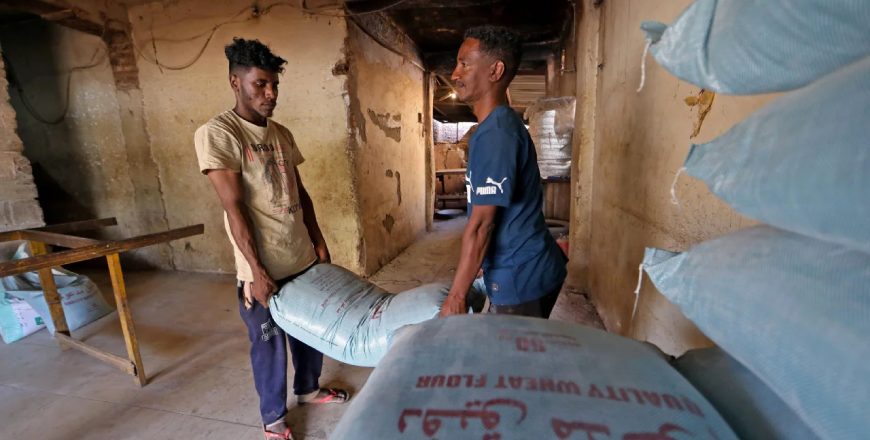You are here
Hunger doubles in Sudan conflict — UN
By AFP - Oct 18,2023 - Last updated at Oct 18,2023

Inflation, economic turmoil and the conflict in Ukraine are contributing to worsening food insecurity in Sudan (AFP photo)
GENEVA — The number of Sudanese families going hungry has near-doubled after six months of fighting between rival generals, the United Nations said on Wednesday.
Thousands have been killed and millions displaced or forced to flee Sudan — while more than half of those remaining need humanitarian aid.
“The number of hungry families has almost doubled,” the UN’s health and children’s agencies said in a joint statement.
“700,000 children are suffering from severe acute malnutrition and 100,000 children require life-saving treatment for acute malnutrition with medical complications,” the World Health Organisation (WHO) and UNICEF said.
The agencies warned that further health system disruptions caused by the conflict would result in “unacceptably high” numbers of preventable deaths among children and vulnerable populations.
They cited a projection by Johns Hopkins University which indicated that “at least 10,000 children under five years of age may die by the end of 2023 due to the increase in food insecurity, and disruptions to essential services” since the conflict broke out on April 15.
The US university’s Lives Saved Tool modelling is funded by the Bill & Melinda Gates Foundation.
The Sudanese army, led by Abdel Fattah Al Burhan, has been battling the paramilitary Rapid Support Forces commanded by his former deputy Mohamed Hamdan Daglo, after the two fell out in a power struggle.
More than 9,000 people have been killed in the conflict so far, according to a conservative estimate by the Armed Conflict Location & Event Data project.
More than a million people have fled Sudan to seek refuge abroad.
A further 4.5 million are considered internally displaced persons, having fled their homes but stayed within the country.
That means there are now 7.1 million IDPs in Sudan — the largest number in the world, the UN agencies said.
“Health facilities are occupied, looted or destroyed. About 70 per cent of hospitals in conflict-affected states are not functional,” it said.
The WHO and UNICEF said they were deeply concerned about cholera, measles, malaria and dengue spreading.
“Health workers have not been paid in months. Supplies are depleted. Critical infrastructure is still under attack. The fighting needs to stop now,” said Mandeep O’Brien, UNICEF’s representative in Sudan.
Related Articles
AMMAN — Nearly one in five children across the Middle East and North Africa (MENA) needs immediate humanitarian assistance, according to the
AMMAN — The Global Report on Food Crises (GRFC) was released, highlighting a sobering reality.
ROME — Three UN agencies warned on Thursday of a "significant deterioration" in the nutrition situation of children and mothers in war-torn














